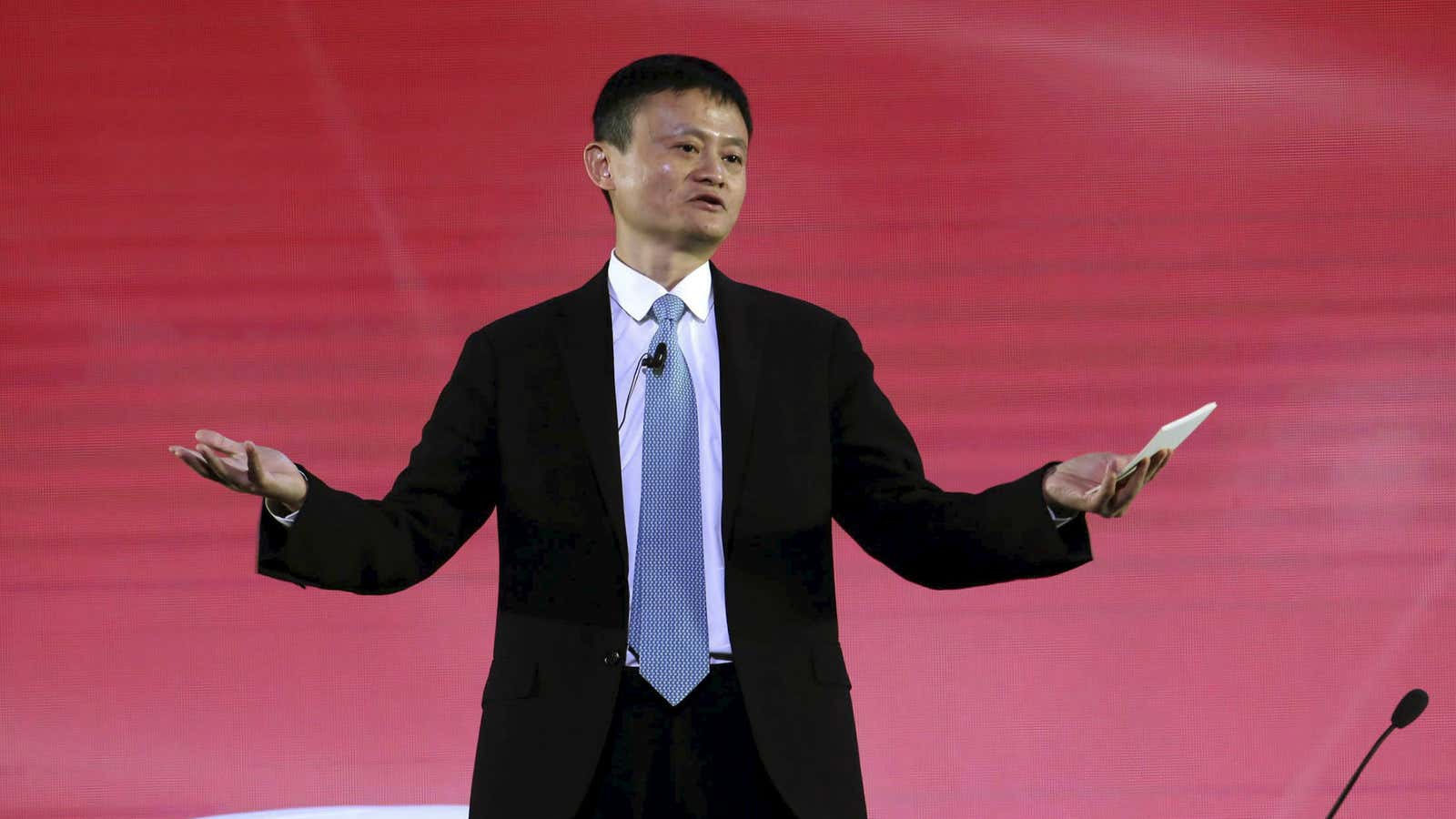Yahoo’s board will meet this week to consider what was once a little more than a far-fetched activist investor fantasy—the sale of its core internet business, the Wall Street Journal reports (paywall). Board members will meet Wednesday through Friday to discuss the long-awaited spin-off of Yahoo’s stake in e-commerce giant Alibaba, as well as a buyer for Yahoo’s web properties, “or both” options, the Journal said.
This raises an important question: What exactly is Yahoo’s core internet business?
The answer might surprise some Yahoo detractors. Despite investors’ disappointment with CEO Marissa Mayer, and the fact that the market has considered the company’s core business “worthless” for years now, Yahoo still commands one of the largest internet audiences in the world, with over 1 billion worldwide users. For none other than Alibaba’s Jack Ma, who has been pushing into the media business in mainland China and beyond, a Yahoo purchase would allow the company to leapfrog every global news provider except Reddit and CNN, according Alexa.
Importantly for Alibaba, which has been trying to grow its online shopping platforms and its own browser outside China, Yahoo currently has 59 different local sites, most of them in local languages, that provide hard news, entertainment, and local stock prices, and command active, engaged audiences. Yahoo.com is one of the top 10 websites in fast-growing online markets like Indonesia, the Philippines, and Mexico.
Globally, Yahoo’s websites draw more users than everyone but Google, Facebook, Youtube, and Chinese search engine Baidu, according to Alexa. Even in the US, where investors have poured money into alternate news media and social networking sites from Business Insider to Snapchat, Yahoo is a leading internet player—and, potentially interesting for Alibaba, commands millions more users than Amazon:
At the bare minimum, buying up the platform that Yahoo’s billion global users interact with would allow Alibaba to get its shopping platforms, with local language translations, in front of new potential customers via advertisements, special local offers, and promotions. It would also help Alibaba build up a new corral of non-Chinese corporate clients who are trying to expand into e-commerce. (Unlike Amazon, Alibaba makes its money from advertisements on its shopping platforms, not the merchandise sold itself.)
But Alibaba has proven much more savvy than offering “the bare minimum” to its own Chinese users. It’s also rolled out brand-new loan products, for instance, and helped make mobile payments ubiquitous, while moving aggressively into entertainment—all of which Ma might be eager to take global. Yahoo’s 11,000 employees present plenty of other upsides for Alibaba, too, including a pool of hundreds, maybe thousands, of engineers—perhaps just the kind of talent Alibaba was looking for this year.
Yes, there’s plenty of downside to such a combination, from culture wars to integration mishaps (not to mention the fact that neither company has ever expressed interest in such a deal). The political push back to the combination could be considerable, depending in part on how much control Alibaba would want over Yahoo’s news content. In the most extreme scenario, a deal could open the door for the Chinese government to spread propaganda far beyond its recent engagement with Facebook and Twitter.
On the plus side for Ma, though, judging by the fact that investors recently valued Yahoo’s core business at less than nothing, a deal would likely come with a pretty attractive price tag.




